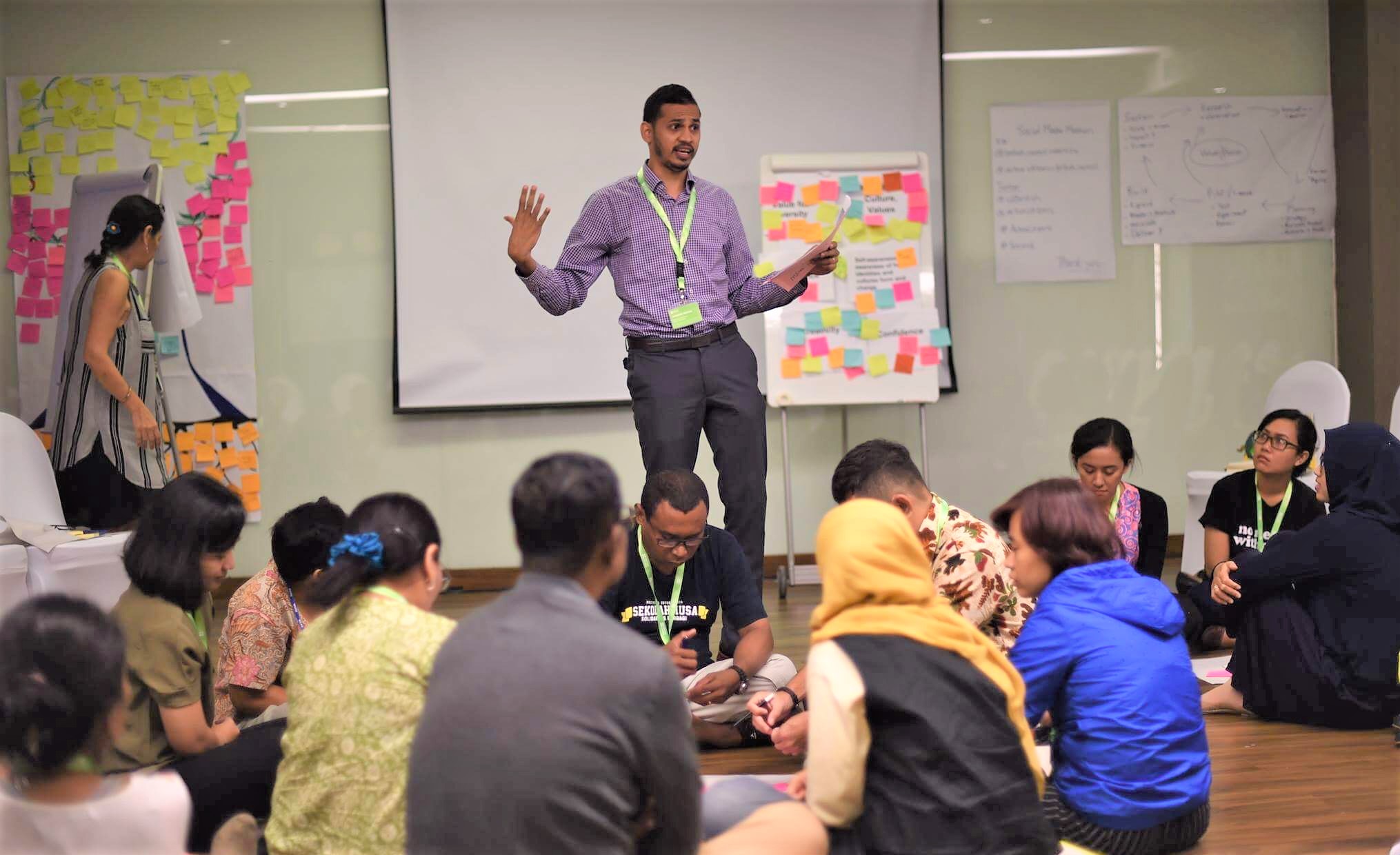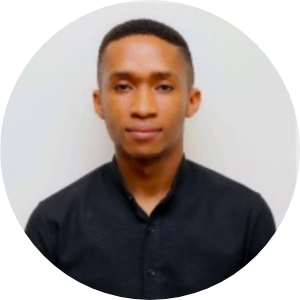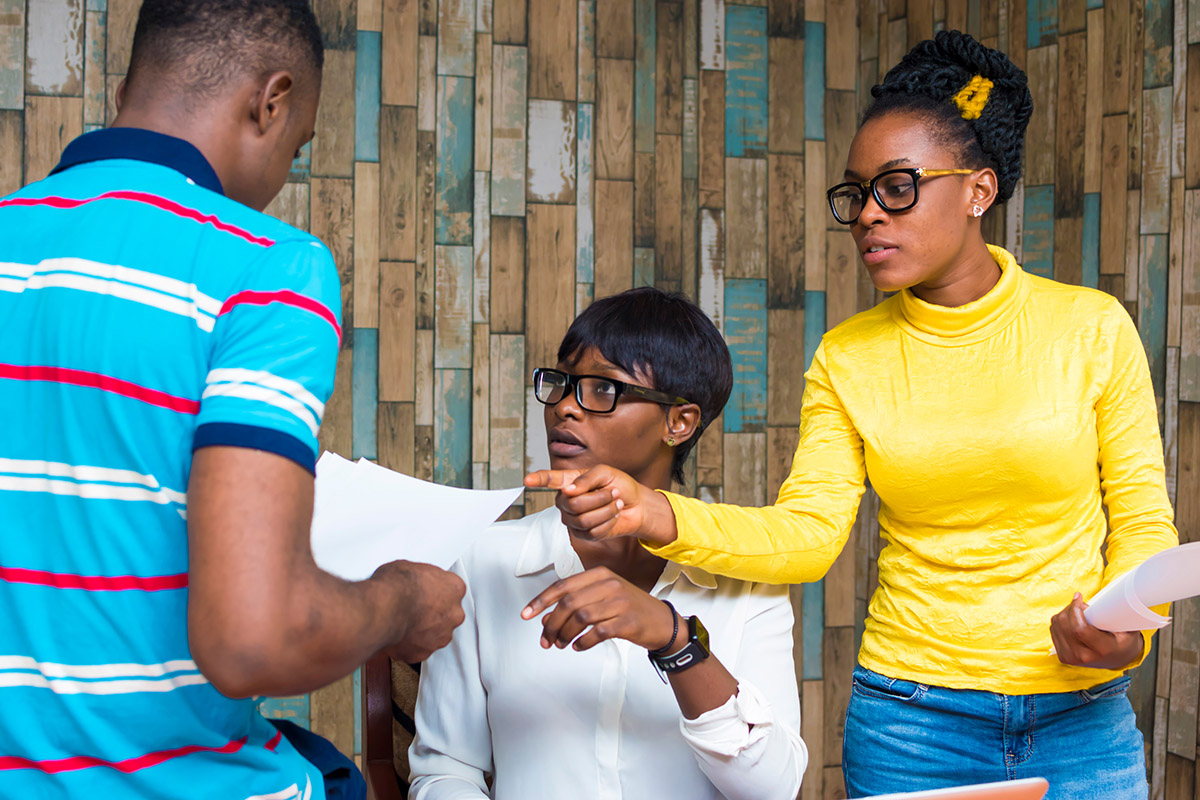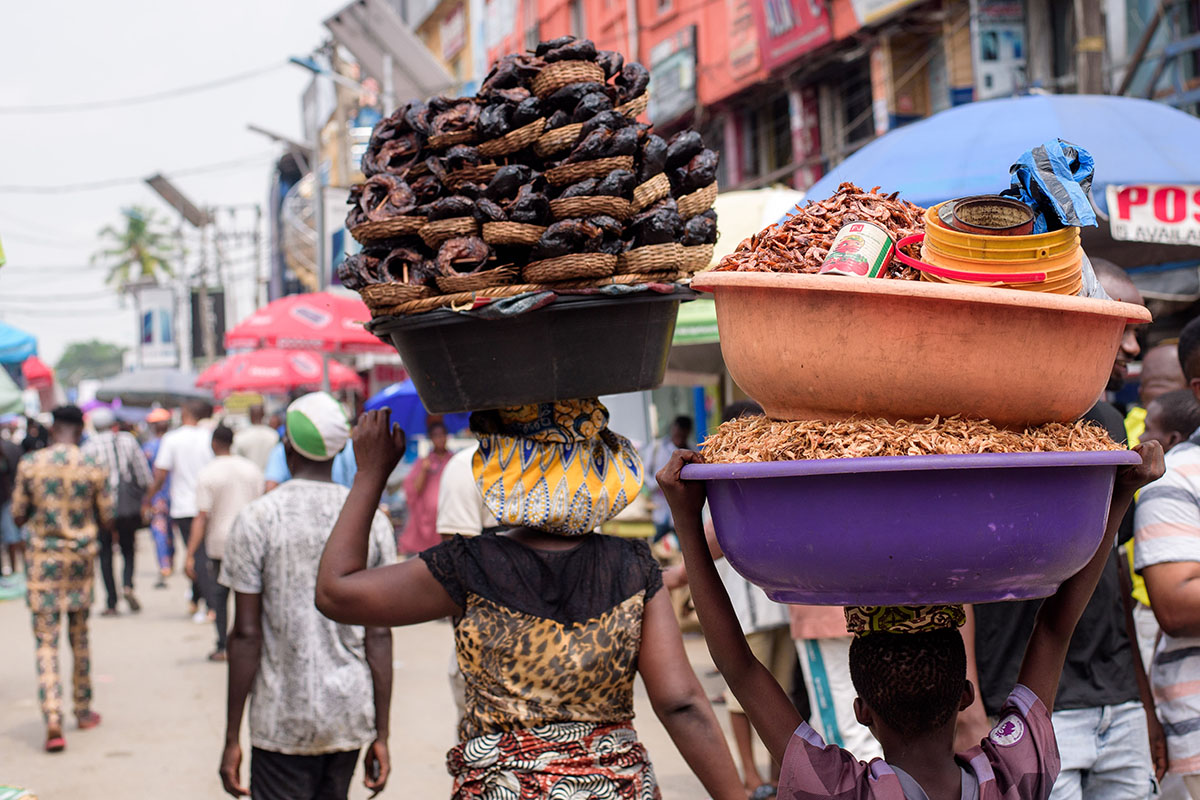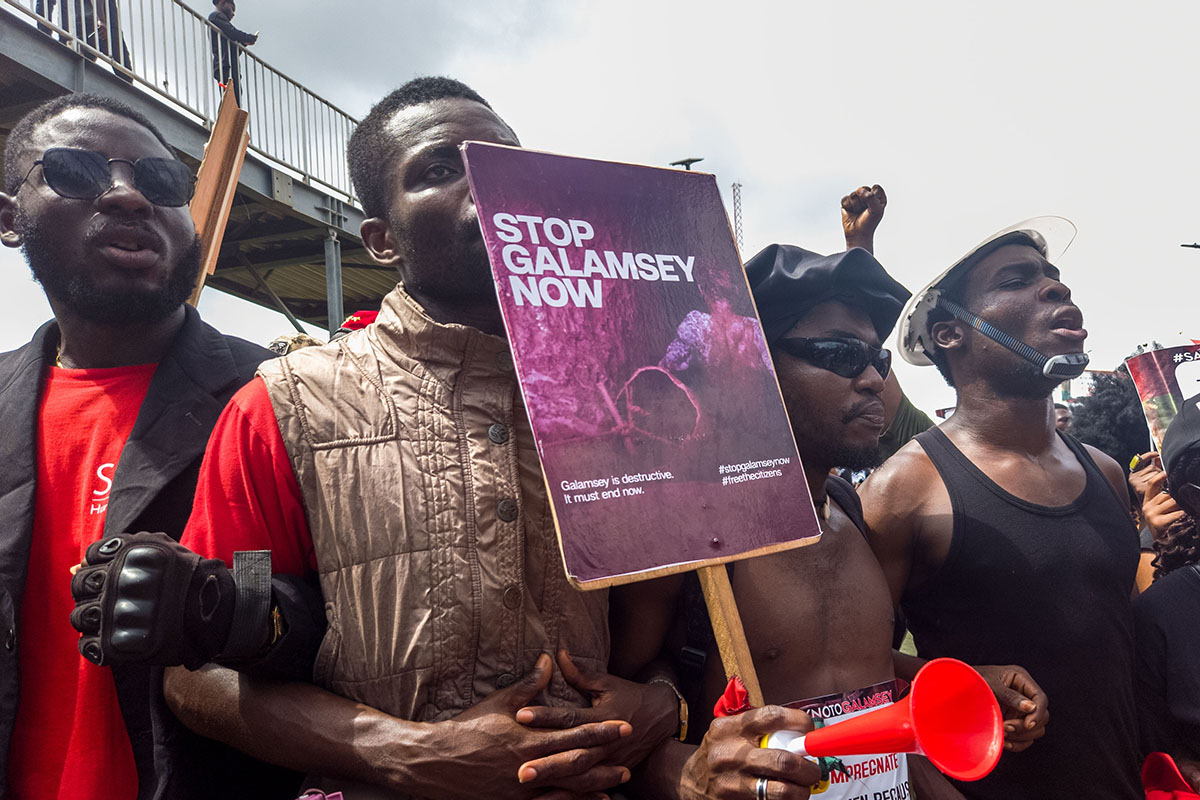Meet Fiji’s climate change crusader
May 25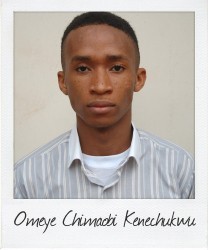
Sivendra Michael is a superhero – without the cape. He is waging war on climate change in Fiji, where a deadly cocktail of extreme weather events could displace up to 1.7 million people in the Pacific Islands by the year 2050. Omeye Chimaobi Kenechukwu, a 24-year-old Commonwealth Correspondent from Nigeria, caught up with Sivendra, one of the 2019 Commonwealth Youth Award finalists, to find out how his social enterprise, Active Citizens, is helping Fiji take action against climate change.
Q: How did Active Citizens start and what was the motivation?
Fiji has faced a series of natural disasters that has displaced numerous people in communities and claimed the lives of several others. The impact of these disasters has grown so severe that the only option people are left with is relocation.
In 2016, over 100 communities in Fiji were identified as “at high risk for disasters”. Endless battles continue between the government and communities as relocating is not as simple as one may think.
Our communities in Fiji depend on the land and the sea as sources of livelihood and to relocate means having to rethink livelihood options, to give up the land of our ancestors and to give up our home – a decision that most of us would resist. Our communities are the reason why we are where we are today.
I will never forget that morning when I received a call from my university asking if I had heard from my family after Cyclone Winston made landfall in Fiji. Hoping that my family was alive, I rushed home as there was no way to contact with them.
Luckily, they were alive. But to see my communities in that state left me devastated. I felt so helpless and shattered that I knew something had to be done about it. So I started reaching out to communities to share about the Active Citizens program and the need for urgent climate action. Today, we have an army of young, passionate and determined individuals that are working with communities on climate smart solutions.
The loss of mangrove and fish ponds, among others, also gives me sleepless nights and has challenged me to do more.
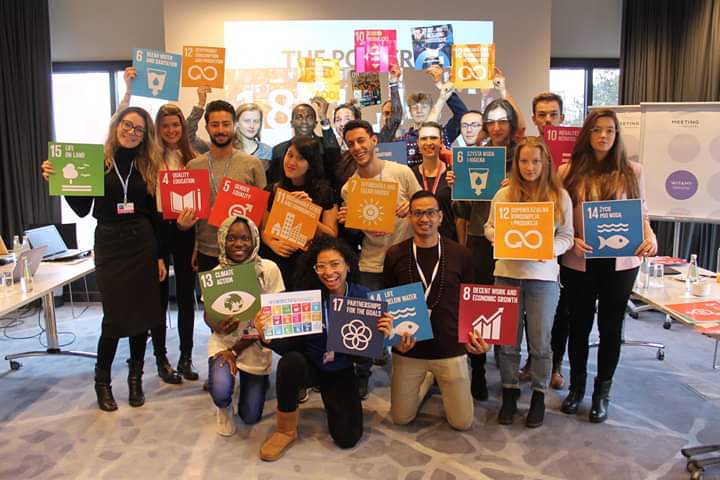
Q: What are some of the challenges you have faced in your fight against climate change?
One of the biggest challenges is explaining to our older generation why there is urgent need for climate action. While some do tend to cooperate, others tend to believe that climate change is God’s punishment for mankind’s sins.
The other challenge is gaining access for equal and fair participation of young people in decision-making spaces. To be honest, it has been like a war for years – young people versus powerful and influential people. Not everyone takes young people seriously, they tend to assume that we are inexperienced.
So, what do we do? We make more noise. We speak out regardless and we stand firm on our position. We use innovative forms of storytelling –powerful videos of young people calling for urgent action against climate change, as it is our home too.
On this note, I would like to say that our leaders should stop using youths in a tokenistic manner. We are not only speaking for ourselves, but for our children and grandchildren. These powerful people should start providing equal access and opportunities for meaningful participation of young people.
There is also lack of urgency from governments. I feel our own is not doing enough when it comes to implementing actions pledged at big international meetings. It’s good to discuss policy solutions, but that must be transformed into action back home. Not five years from today. Young people want action now!
Q: In 2015, world leaders set an ambitious climate change target to limit global warming to “well below 2 °C”. What is your view on COP21?
It remains one of the most successful commitments to combat climate change. But concerns remain about implementation. The US’s decision to pull out seems to be a big blow. But other countries are still there, and one country cannot extinguish the ambitions of the rest of the world.
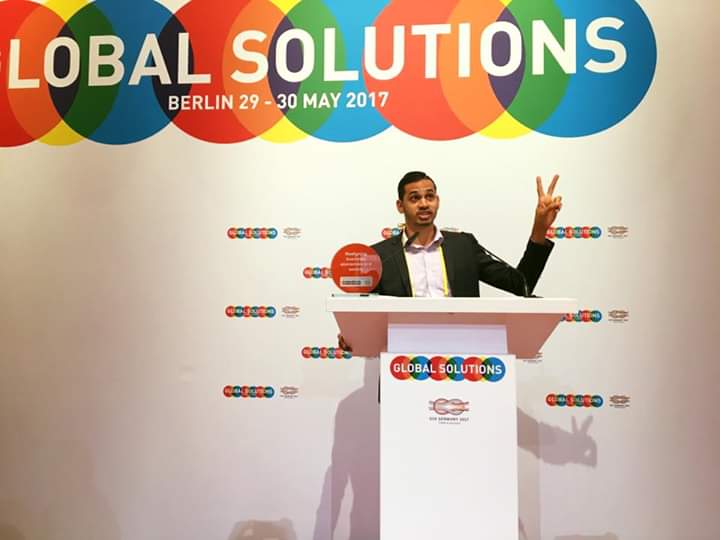
Q: What has been the impact of your work?
Our aim is to build the capacity of young people to understand international climate policy better. We run campaigns for alternative energy sources and community awareness and advocacy programmes on climate change. We also support young delegates to attend international forums and meetings on climate action.
So far, Active Citizens has trained thousands of young people through a knowledge-sharing strategy to implement climate solutions, and to address grassroots issues such as erosion and coral reef degradation.
Through our work, we have been able to start social enterprises and engage young people globally. We have launched two music videos on climate change that have reached more than 12,000 people. We have also initiated 4,000 mangrove planting projects using thousands of volunteers.
Other activities include establishing two new partnerships with local NGOs, training 40 young people to address climate change issues, conducting over 30 clean-up campaigns a year, and using social media to talk about climate change. Our most important and most visible achievements have been planting mangroves and cleaning up our beaches.
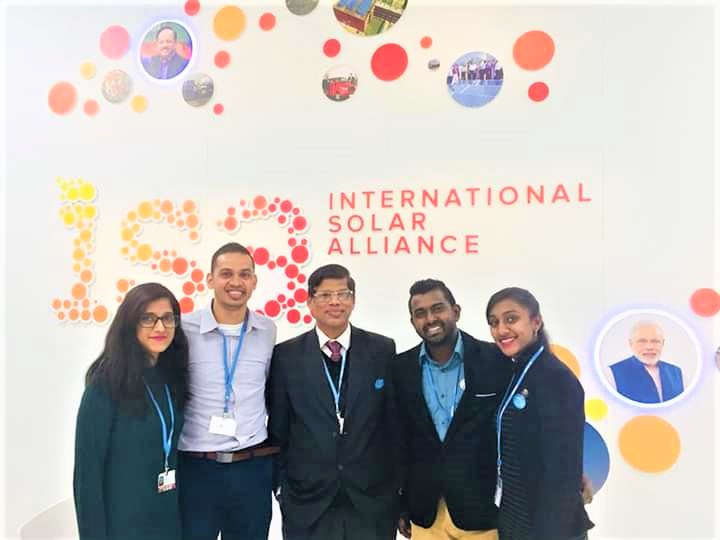
You are clearly a force for change in Fiji. Is there room for you to diversify your work?
Yes, for sure. We talk about poverty, youth unemployment and domestic violence. We also connect young people around the world. As of 2016, we had been to 10 Pacific island countries and hope to move to others soon.
What are your plans for the future?
Continue growing, reach out to other Pacific islands, and strengthen our youth programmes.
The Commonwealth Youth Awards for Excellence in Development Work highlights the contributions of young people who are making a difference in their communities and celebrates their contributions to the Sustainable Development Goals (SDGs).
………………………………………………………………………………………………………
About me: I am a Geology graduate of the University of Nigeria. I’m currently a renewable energy (solar) mini-grid data analyst with a leading renewable energy firm in Nigeria and, most importantly, a core lover of writing. The degradation of Nigeria has been of major concern to me and I hope to make a huge impact in the development of my country by writing and telling the truth even when it seems hidden. I love my career (geology), environment, renewable energy, politics and football. ……………………………………………………………………………………………………………..
Opinions expressed in this article are those of the author and do not necessarily represent the views of the Commonwealth Youth Programme. Articles are published in a spirit of dialogue, respect and understanding. If you disagree, why not submit a response?
To learn more about becoming a Commonwealth Correspondent please visit: http://www.yourcommonwealth.org/submit-articles/
………………………………………………………………………………………………………………..
